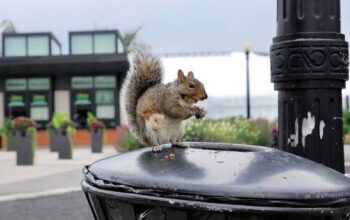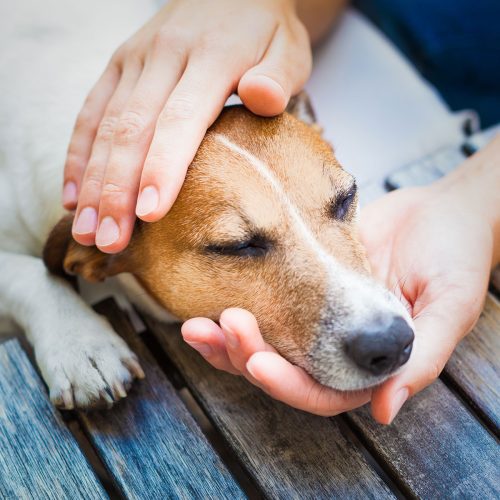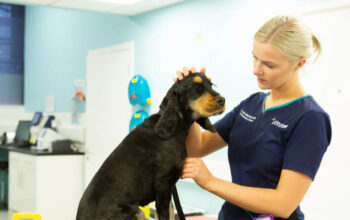How to Keep Your Pets Safe During the Holidays. The holidays are a time for joy, celebration, and… unexpected pet mishaps?
Between the twinkling lights, tempting treats, and a house full of guests, the season can be just as stressful for your pets as it is for you.
In fact, according to the American Veterinary Medical Association (AVMA), holiday-related pet emergencies spike by nearly 30% during this time of year. From sneaky snack thefts to Christmas tree catastrophes, there are plenty of hidden dangers that could turn festive fun into a frantic trip to the vet.
“Every holiday season, we see an increase in cases of chocolate toxicity, foreign body ingestion, and stress-related illnesses in pets,” says Dr. Emily Carter, a veterinarian specializing in emergency care. “Many pet owners don’t realize how common these incidents are until it happens to them.”
But don’t worry—I’ve got you covered! In this guide, we’ll go over simple, practical ways to keep your furry friends safe and stress-free during the holiday hustle. From decorating do’s and don’ts to pet-friendly party tips, these expert-backed strategies will help you enjoy the festivities without any unexpected (and expensive) surprises.
Because let’s be honest—no one wants to spend Christmas Eve at the emergency animal clinic. Let’s dive in!
1. Common Holiday Hazards for Pets
a. Dangerous Foods
The holidays are synonymous with delicious meals, but not all foods are safe for pets. Many common holiday treats can be toxic or harmful:
- Chocolate: Contains theobromine, which is toxic to dogs and cats. Dark chocolate is especially dangerous.
- Grapes and Raisins: Can cause kidney failure in dogs.
- Onions and Garlic: Found in many holiday dishes, they can damage red blood cells and cause anemia.
- Xylitol: A common sweetener in sugar-free candies and baked goods, xylitol can cause rapid insulin release, leading to liver failure.
- Alcohol: Even small amounts can be toxic, causing vomiting, tremors, and respiratory failure.
- Fatty Foods: Rich, fatty foods like gravy, turkey skin, and ham can lead to pancreatitis, a painful and serious condition.
- Bones: Cooked bones can splinter and cause choking or digestive tract injuries.
b. Holiday Decorations
Festive decorations add beauty to the season but can be hazardous to pets:
- Christmas Trees:
- Pine needles can be toxic if ingested.
- Tree water may contain pesticides or fertilizers.
- Unstable trees can tip over if pets climb or bump into them.
- Ornaments:
- Glass ornaments can break and cause injuries.
- Tinsel and ribbons can cause intestinal blockages if swallowed.
- Salt dough ornaments are highly toxic due to high sodium content.
- Lights & Wires:
- Chewing on electrical cords can result in electrocution.
- Always use pet-proof cord covers or keep wires out of reach.
c. Seasonal Plants
Many holiday plants are toxic to pets:
- Poinsettias: Mildly toxic but can cause vomiting and irritation.
- Mistletoe & Holly: Can cause severe vomiting, diarrhea, and cardiovascular issues.
- Lilies: Extremely toxic to cats, even small amounts can cause kidney failure.
- Christmas Cactus: Not toxic but can cause stomach upset if chewed.
d. Fireplaces & Candles
- Keep candles out of reach to prevent burns or accidental fires.
- Use a fireplace screen to prevent pets from getting too close.
- Never leave a pet unattended around an open flame.
e. Holiday Noise & Crowds
- Fireworks, loud music, and large gatherings can cause anxiety in pets.
- Guests may unknowingly leave doors open, allowing pets to escape.
- Unfamiliar people may stress or overstimulate your pet.
Read Also: Top 5 Mental Stimulation Games for Dogs to Keep Them Sharp
2. Tips for Keeping Your Pet Safe & Stress-Free
a. Pet-Proof Your Holiday Decorations
- Secure your Christmas tree with a stable base or anchor it to the wall.
- Keep ornaments, tinsel, and fragile decorations out of reach.
- Use pet-safe decorations that won’t break or pose a choking hazard.
b. Provide a Safe Space
- Create a quiet, comfortable retreat where your pet can relax away from noise and guests.
- Place their bed, water, and favorite toys in this space.
- Consider playing calming music or using a white noise machine.
c. Watch the Holiday Feasts
- Keep all food out of reach and secure trash cans to prevent scavenging.
- Inform guests not to feed table scraps to pets.
- If you want to include your pet in the festivities, offer pet-safe treats like cooked plain turkey or special holiday-themed pet treats.
d. Be Cautious with Guests
- Let guests know about any pet rules, such as not feeding them or keeping doors closed.
- If your pet is nervous around strangers, allow them to interact at their own pace.
- Watch out for young children who may unintentionally stress or harm pets.
e. Avoid Holiday Travel Stress
If you’re traveling with your pet:
- Use a secure, well-ventilated carrier or crate.
- Pack familiar items like a blanket or toy to provide comfort.
- Take regular breaks for bathroom needs and hydration.
- Never leave a pet alone in a car, especially in extreme temperatures.
If leaving your pet at home:
- Arrange for a trusted pet sitter or boarding facility.
- Leave detailed instructions on feeding, medication, and emergency contacts.
- Provide enrichment toys to keep your pet occupied while you’re away.
f. Use Pet-Safe Holiday Scents
Many holiday air fresheners and scented candles contain essential oils that can be toxic to pets, including:
- Peppermint
- Cinnamon
- Pine
- Tea tree oil
- Eucalyptus
Use pet-safe alternatives like unscented candles or pet-friendly essential oils (in moderation).
3. Emergency Preparedness
a. Know the Signs of Poisoning
If your pet ingests something harmful, look out for:
- Vomiting or diarrhea
- Excessive drooling
- Lethargy or weakness
- Tremors or seizures
- Difficulty breathing
b. Keep Emergency Numbers Handy
- Your veterinarian’s contact information
- The nearest 24-hour emergency animal clinic
- The ASPCA Animal Poison Control Center: (888) 426-4435
c. Create a Pet Emergency Kit
Have a kit ready with:
- A pet first-aid kit (bandages, antiseptic, tweezers, etc.)
- Extra food and water
- Copies of medical records
- A leash, harness, and ID tags
4. Special Considerations for Different Types of Pets
Dogs
- Provide extra exercise before events to help reduce anxiety.
- Supervise interactions with guests, especially children.
- Avoid dressing your dog in costumes unless they are comfortable wearing them.
Cats
- Cats often get stressed with loud noises and unfamiliar people.
- Provide high perches or hiding spots where they can retreat.
- Be mindful of open doors—cats are known for sneaking out unnoticed.
Small Pets (Rabbits, Guinea Pigs, Birds, etc.)
- Keep them in a quiet, temperature-controlled room away from the festivities.
- Avoid sudden loud noises that may startle them.
- Ensure they have fresh food, water, and a clean environment.
FAQS
Is Boric Acid Safe for Pets?
Boric acid can be toxic to pets if ingested in large amounts. While small, incidental exposure may not be immediately harmful, ingestion or prolonged contact can cause symptoms like vomiting, diarrhea, drooling, and even more severe health issues. If you use boric acid for pest control, keep it out of reach of pets and opt for pet-safe alternatives when possible.
Is Diatomaceous Earth Safe for Pets?
Food-grade diatomaceous earth (DE) is generally safe for pets and is often used to control fleas and parasites. However, pool-grade DE is highly toxic and should never be used around animals. When applying DE, avoid excessive inhalation, as it can irritate the lungs of both pets and humans.
Is Ortho Home Defense Safe for Pets?
Ortho Home Defense products vary in safety depending on their ingredients. Most versions are considered safe for pets once completely dry, but direct exposure to wet spray can be harmful. Always follow label instructions, keep pets away from treated areas until dry, and choose pet-friendly alternatives if concerned.
How to Keep a Pet Safe During a Storm
- Create a safe space: A quiet, secure area where your pet feels comfortable.
- Use calming aids: Thunder shirts, white noise, or calming treats can help.
- Ensure proper identification: In case they escape, make sure they have a collar with ID or a microchip.
- Keep them indoors: Close windows and doors to prevent escape or injury.
- Provide distractions: Play soft music, offer toys, or engage in gentle play to ease anxiety.
Is “Demetrius Earth” Safe for Pets?
It seems like you may be referring to Diatomaceous Earth (DE). If so, food-grade DE is safe for pets when used correctly, but inhalation should be minimized. Pool-grade DE is not safe for pets. If you were referring to something else, let me know!
Would you like me to expand on any of these?
Final Thoughts
The holidays are a time for joy and celebration, but they can also present unique dangers for our pets. By being aware of potential hazards and taking proactive steps, you can ensure that your furry friends stay safe, happy, and stress-free throughout the festive season.
With the right precautions in place, you and your pets can enjoy a wonderful and safe holiday season together!
Would you like recommendations for pet-safe holiday recipes or DIY pet gifts? Let me know how I can help!



